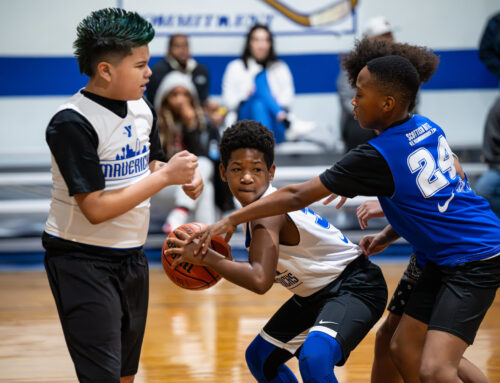It’s not news to anybody that we live in an extremely competitive society. Money, jobs, power and status are just a few of things that we know we’re expected to compete for.
In the grown-up world, we learn to accept that, but we also expect that competition be conducted within certain parameters. For example, most of us would probably at least give lip service to the idea that you’re not supposed to lie, cheat, steal, or use violence to beat the competition and get your way.
There’s one arena, however, where it increasingly seems like almost anything goes and, sad to say, that’s the world of youth sports activities. What’s worse, the perpetrators most often seem to be adults, especially parents whom you would like to think would be the ones trying to set an example of fair play. It’s pretty disturbing that some parents seem not to have a problem with accepting or even encouraging behavior involving their kids’ activities that they wouldn’t for themselves.
The worst recent example is the notorious “hockey dad” manslaughter case in Massachusetts, where an out-of-control parent mercilessly pummeled a coach, who apparently was no prize himself, over a kids’ hockey game. Or how about the superstar pitcher from the Little League World Series who turned out to be about 3 years too old and whose father apparently put him up to it?
Every day, there are instances that don’t make the newspapers of parents chewing out officials and coaches and berating their own kids, and even teaching them how to cheat. The National Association for Youth Sports says that up until 1990, “incidents” happened at about five percent of all games, but that percentage is now up to 15. This may all be symptomatic of a lessening of civility in our society, but it’s even worse because our kids are learning that’s how you play the game.
Why the pressure to win at any cost?
Some parents think a star athlete can get scholarship money and maybe even have a professional career. So what makes that any different from playing a sport for money? Besides, if you do the math, no more than an extremely small handful of school-age athletes make it to the pros, much less have a long and lucrative career.
Or maybe it’s about living vicariously through one’s kids, chasing athletic glory the parent never achieved or having bragging rights, even though the child would be a lot better off in the long run if he or she were encouraged to work that hard in the classroom as well.
And don’t try to tell me it’s harmless or it’s all in fun, either.
Children watch their moms and dads from birth, and pick up all kinds of cues and messages from them. Is the message we really want to give to kids that it’s OK to use cheating or even intimidation to win – that is, winning at any cost? After all, we’re not talking about personal or national survival – these are supposed to be games.
Like anyone who’s made it to my increasingly advanced age, I’ve made a few mistakes along the way, but I can always try to do better. One thing I don’t ever want to do is somehow send a message to my daughter that it’s OK to be dishonest or cheat or lose your temper just to win a game. I know it would have to hurt if I ever looked in the mirror and knew I wasn’t setting a good example for her.
Don’t get me wrong, youth sports is great if it’s all about teaching teamwork, discipline, focusing on a goal and playing by the rules, but once it becomes an ego-centered, anything-goes scramble to the top of the heap, aided and abetted by unscrupulous and out-of-control parents, then it becomes a negative element in children’s lives, not a positive one.
After all, the grown-ups are the ones who are supposed to have learned to be responsible and fair.





